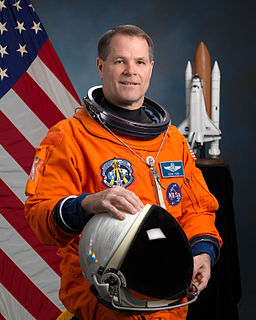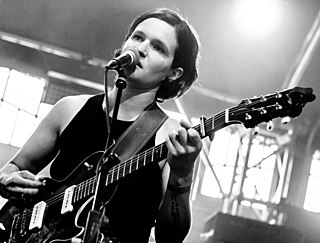A Quote by Kevin A. Ford
The ability of the humans to not only function in space but be very functional when they arrive at their destination, those are the kinds of things we're learning from the science. Fuel transfer technologies and all the things we can learn about the space environment are all valuable to us for pressing on out.
Related Quotes
The frontier in space, embodied in the space colony, is one in which the interactions between humans and their environment is so much more sensitive and interactive and less tolerant of irresponsibility than it is on the whole surface of the Earth. We are going to learn how to relate to the Earth and our own natural environment here by looking seriously at space colony ecologies.
I believe that all centers that appear in space - whether they originate in biology, in physical forces, in pure geometry, in color - are alike simply in that they all animate space. It is this animated space that has its functional effect upon the world, that determines the way things work, that governs the presence of harmony and life.
We need to be very thoughtful about how we propose to spend the money that NASA does have for space exploration. And we need to be clear that there's the human spaceflight part of NASA, and there's the science space part of NASA, and there's also aeronautics. Those are all very different things that NASA does.
In 2009 I went up on the space shuttle. I was in space for 16 days and docked at the space station for 11 days. The entire crew did five space walks, of which I was involved with three of them. When you're doing a space walk, you always have a buddy with you. It's a very dangerous environment when you're doing a space walk.
We have said that consciousness is an operation rather than a thing, a repository, or a function. It operates by way of analogy, by way of constructing an analog space with an analog 'I' that can observe that space, and move metaphorically in it. It operates on any reactivity, excerpts relevant aspects, narratizes and conciliates them together in a metaphorical space where such meanings can be manipulated like things in space.
Oftentimes, when we think of 3D, we think of things coming out of the screen, but actually, you've got this zero, this negative space, what they call the negative space, which is the scene, what's being filmed in the positive space of the audience. As you can have things come out, you can have all of this depth.
We've been surrounded by images of space our whole lives, from the speculative images of science fiction to the inspirational visions of artists to the increasingly beautiful pictures made possible by complex technologies. But whilst we have an overwhelmingly vivid visual understanding of space, we have no sense of what space sounds like.
































